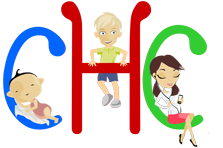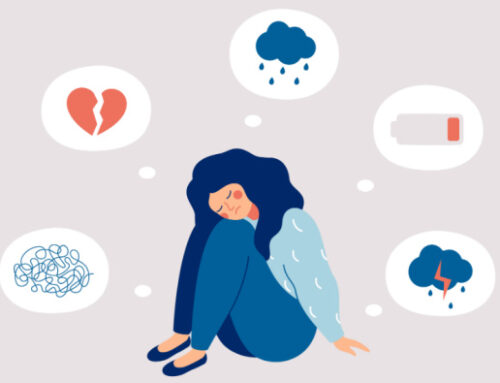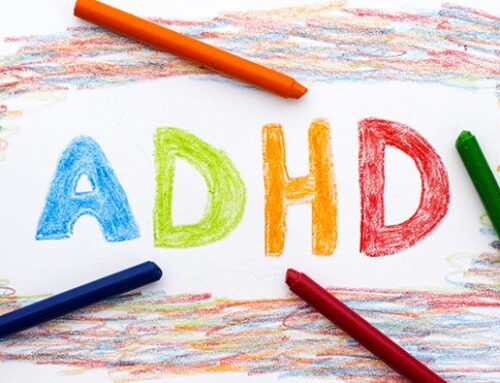By Focalin XR
You probably have a lot of questions about Attention Deficit Hyperactivity Disorder (ADHD) –whether you have just been diagnosed yourself, you are the parent of a child recently diagnosed, or you are just curious.
Attention Deficit Hyper activity Disorder can sound scary when you first hear it. This guide will help you better understand ADHD and will give you the information you need to get a good start on the path to learning to live with ADHD.
ADHD SHOULD NOT BE A MYSTERY
There’s a lot of incorrect information about ADHD out there, and the first step in understanding the condition is separating the myths from the facts:
MYTH: ADHD isn’t “real,” and it’s often blow out of proportion.
FACT: ADHD is a real mental health problem. This has been confirmed by more than 40 years of scientific research. In fact, ADHD affects approximately 3% to 7% of school-aged children and approximately 4% of adults.
MYTH: Poor parenting, schooling, or nutrition may cause ADHD.
FACT: ADHD is thought to be caused by changes in brain activity, not by bad parenting, a poor diet, or stress.
MYTH: Children can simply outgrow their ADHD.
FACT: It’s true that children often get better at coping with ADHD symptoms as they mature into teenagers and adults. But most children with ADHD still have symptoms as teenagers. And up to 65% of hyperactive children may continue to experience symptoms into adulthood. That’s why it’s important for children with ADHD to learn good work/study habits early on, and for adults with ADHD to seek support from a doctor, nurse, or other health care professional.
MYTH: People with ADHD are not as smart as people without the condition.
FACT: Having ADHD does not mean that someone is less intelligent or talented than someone without the condition. ADHD affects people of all intelligence levels.
MYTH: Medications for ADHD do not really work.
FACT: A majority of children, teens, and adults with ADHD respond well to medication. That means medication helps them manage ADHD symptoms.
MYTH: ADHD does not run in families.
FACT: Scientific studies have shown that ADHD could be hereditary, which means that children have a higher chance of having it if a parent or sibling does too.
THE 3 TYPES OF ADHD
- Inattentive type- When a person is easily sidetracked or has trouble paying attention for a long period of time. He or she may also have trouble with details or getting organized, and may avoid tasks that require too much thinking. In addition, he or she might be forgetful or have trouble listening.
- Hyperactive-impulsive type- When a person has trouble sitting still, shows little patience and self-control, talks a lot, frequently interrupts others, has trouble taking turns, and is often in motion.
- Combined type- When a person experiences both inattentive and hyperactive-impulsive type symptoms.
ADHD SYMPTOMS IN CHILDHOOD, THE TEENAGE YEARS, AND ADULTHOOD
ADHD can be a lifelong disorder that can affect you as a child, teen, or adult. To manage ADHD, it is important to understand how symptoms can change with age.
The School Years- It’s very important for children in school to listen, pay attention, cooperate, organize, and follow instructions. For children with ADHD, those tasks can be particularly difficult.
The Teen Years– When ADHD is not properly identified and managed at an early age, problems in school may increase during the preteen and teen years.
The Adult Years- Adults with ADHD are more likely to be forgetful, inattentive, disorganized, and tend to lack self-control. They may communicate poorly and interrupt during conversations.
ADHD AT SCHOOL
Teachers are required by law to support the individual needs of children with ADHD. Many teachers know about ADHD, and they are often willing to change some of their teaching styles to help children succeed in the classroom.
In fact, students with ADHD may be covered by 2 federal laws designed to ensure their needs are met in school. These laws are Section 504 of the Rehabilitation Act of 1973 (Section 504) and the individuals with Disabilities Education Act (IDEA).
For more information about these laws and how they might be beneficial to your child, please contact your local school district or visit the U.S. Department of Education online at www.edu.gov.
3 WAYS TO MANAGE THE SYMPTOMS OF ADHD
- Behavioral Management and Education- For children, this means learning how to change their behavior. For adults, it means learning new ways to manage the symptoms of ADHD. There are many books about behavioral therapy for ADHD, and your doctor might be able to recommend some or provide more information about this approach to managing symptoms.
- Medicine-Talk to your doctor about wither medication is the right choice for you or your child. Stimulants are the most common type of medicine for treating ADHD. These medications are called simulants because they help improve brain activity in people with ADHD. Stimulant medications can manage all 3 types of ADHD. Doctors may also prescribe other types of medicine based on your child’s needs.
- Counseling- For patients with ADHD, counseling may involve meeting one-on-one with a therapist, psychologist, or other person who specializes in ADHD management. There are also support groups for patients with ADHD, and sometimes doctors suggest family counseling that can help make it easier to live with someone who has ADHD.
HELPFUL TIPS
- Build a Support System- Whether it’s you or it’s your child who has ADHD, you shouldn’t feel like you have to do it alone. Give your friends, family, colleagues, and others you care about the chance to help when it’s needed. You might be surprised by how understanding people can be.
- Improve Your Organization- Staying organized can make it easier to keep appointments, remember important events, and stay on top of projects. You can use a simple day planner or a handheld device, or your child can use a child-friendly calendar, to help.
- For What Works for You- Taking part in activities and jobs that match personal strengths can help some people with ADHD manage their symptoms. For example, sports can be a better after-school activity for children with ADHD than the chess club. And an active job, rather than a desk job, might be a better career path for adults with ADHD.
These suggestions are just the beginning of your management of ADHD. Check the resources at the end of this handout or your local bookstore for more information that can help.
HELPFUL RESOURCES
Children and Adults with Attention Deficit/Hyperactivity Disorder (CHADD) www.chadd.org
American Psychological Association (APA) www.apa.org
The Americans with Disabilities Act www.ada.gov
Attention Deficit Disorder Association (ADDA) www.add.org
United States Department of Education www.ed.gov







